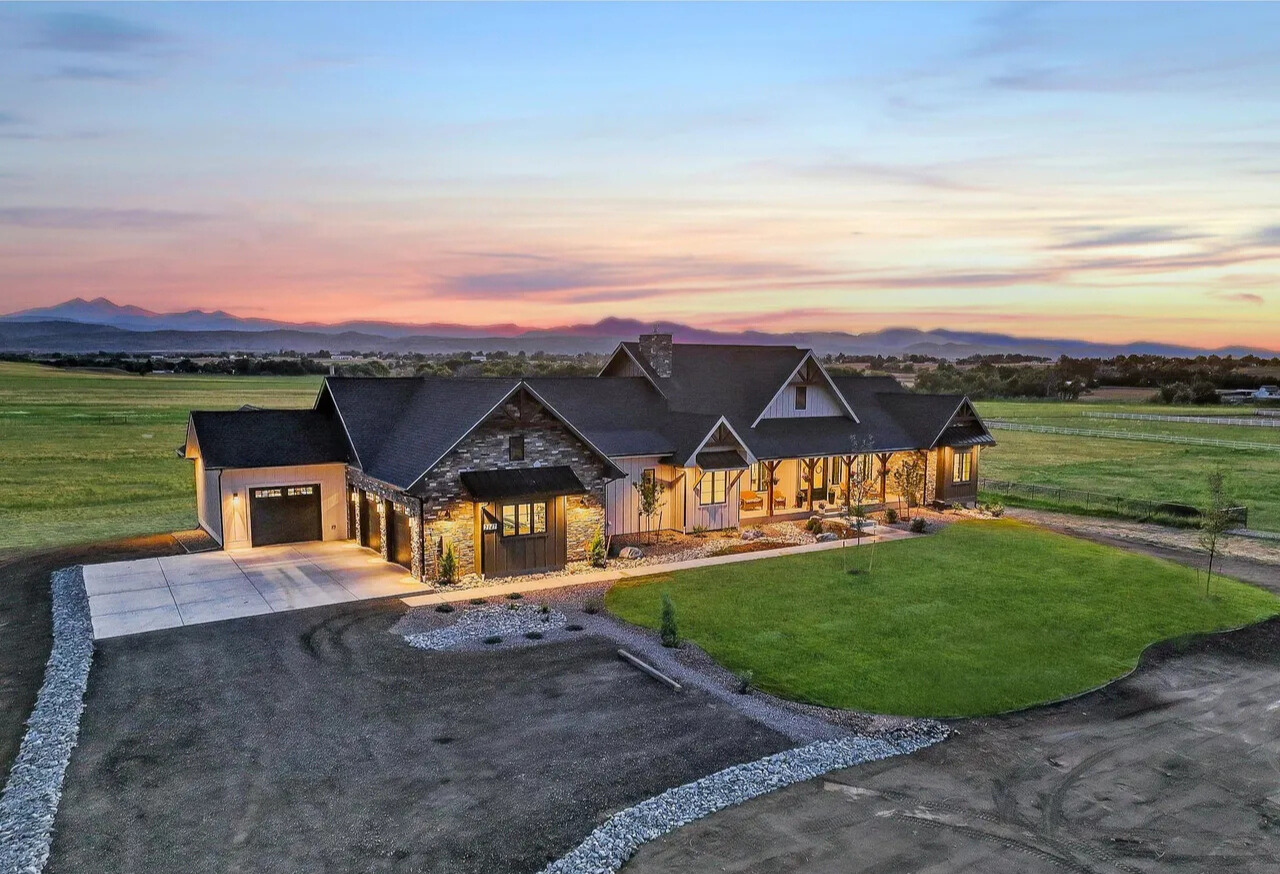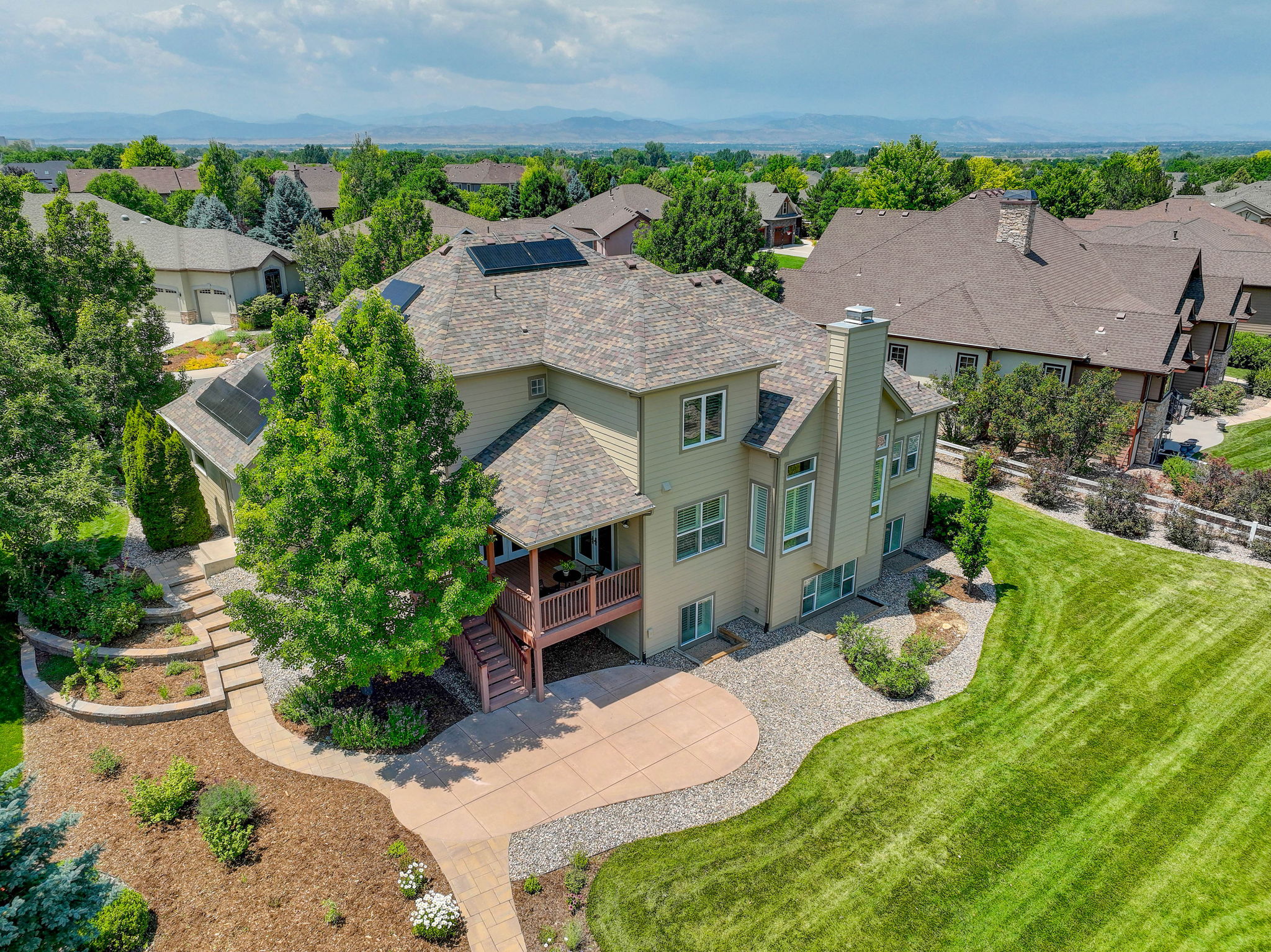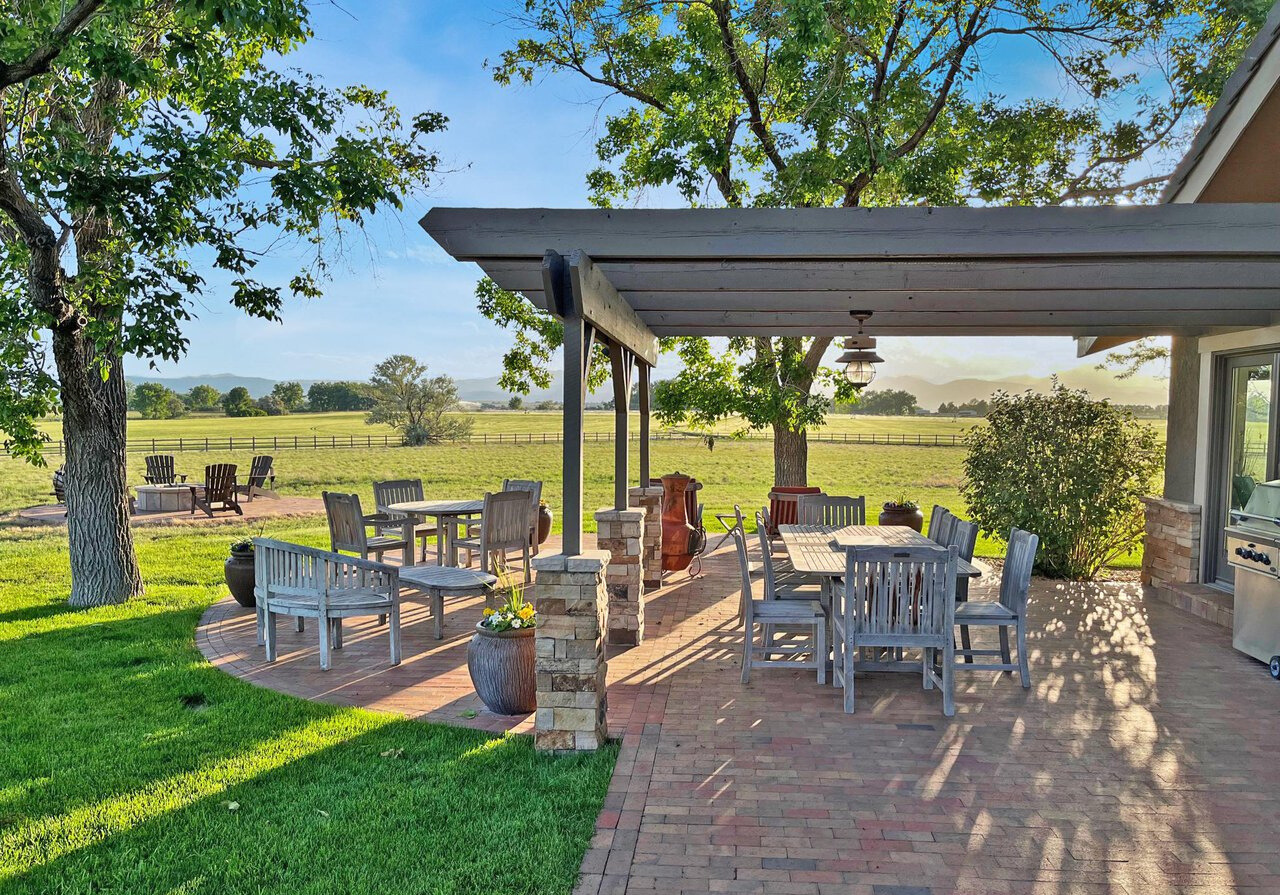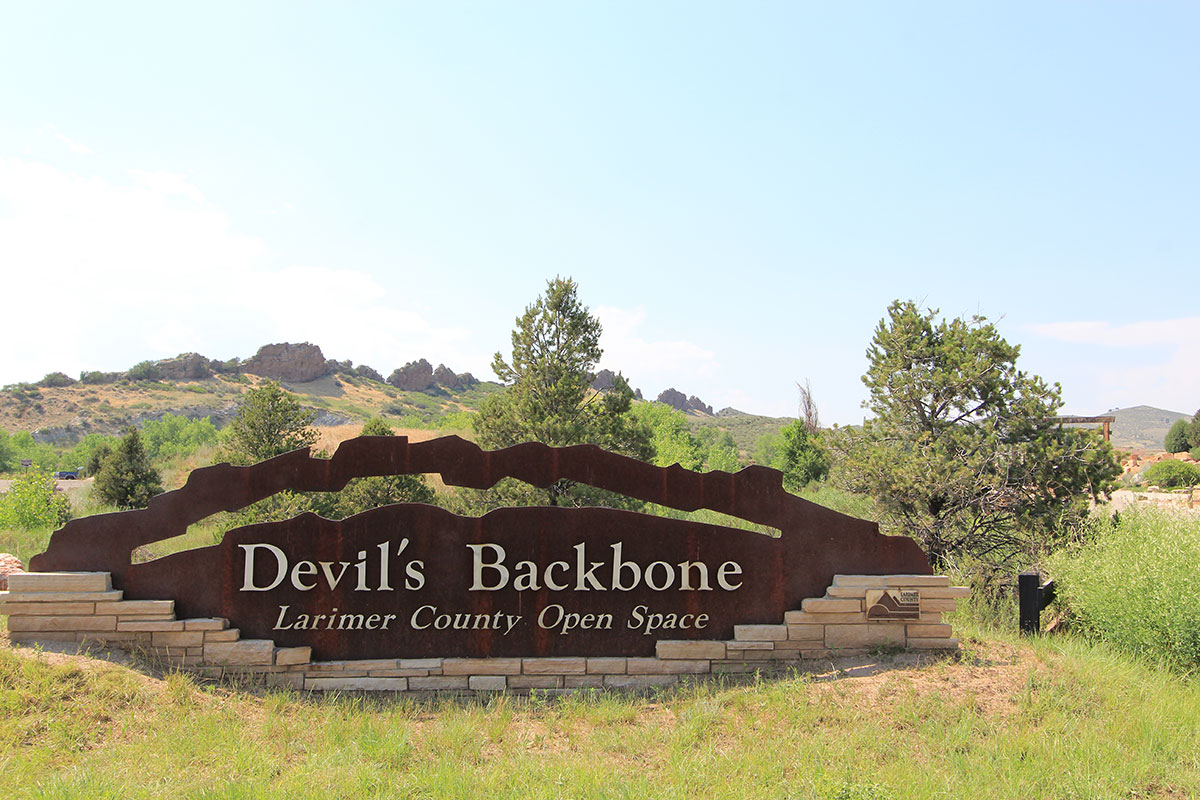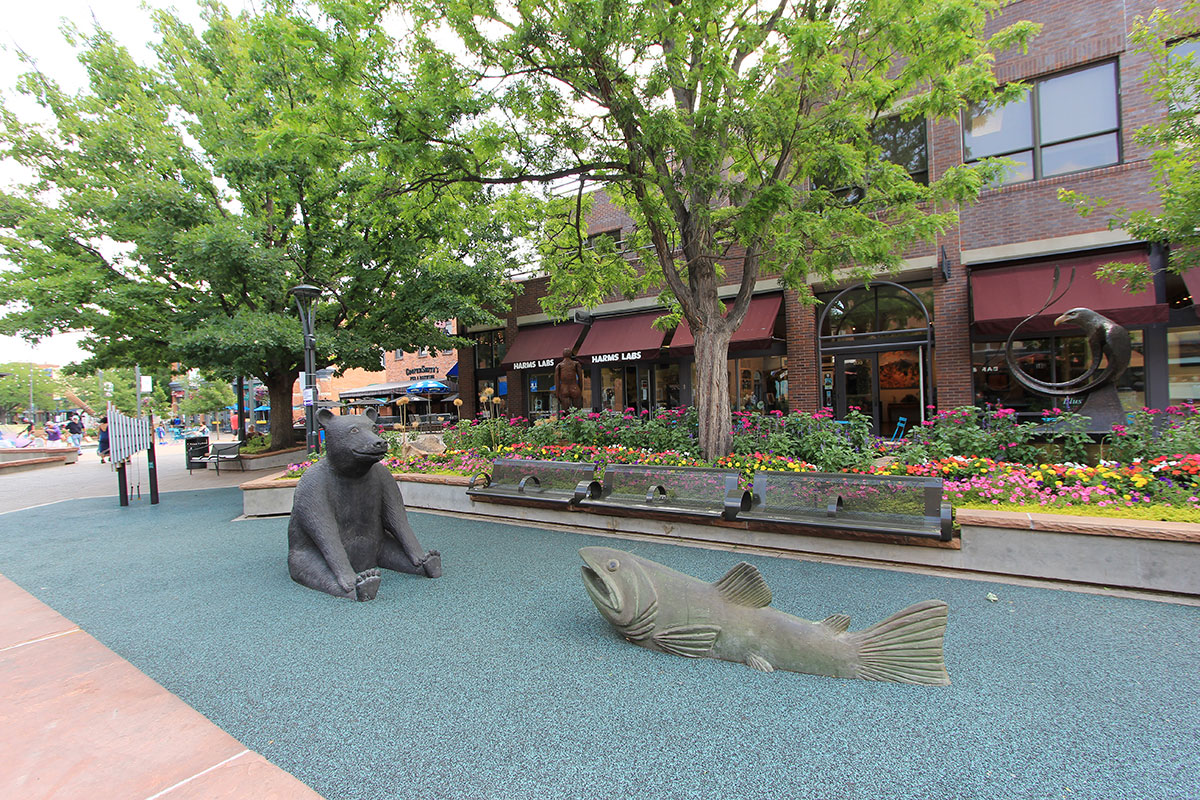Iconic views of the Rockies mix with a laid-back Old Town and newer suburbs further to the west in the 'Garden Spot of Colorado'. Berthoud (pronounced ‘Burr-thid’) saw a number of claims during the Colorado Gold Rush in the early 1860's before it quieted down. At last tally, 15,000 people call it home.
In 1872, a miner-turned-rancher from Central City, Colorado, Lewis Cross, staked the first homestead claim where the Colorado Central Railroad planned to cross Little Thompson creek. When the tracks were laid through the valley in 1877 a depot, section house, and water tank were installed at this strategic site. The tiny settlement known as Little Thompson was renamed Berthoud in honor of Edward L. Berthoud, who had surveyed the rail route through the valley.
Over the next few years the settlement grew to include a handful of homes, a blacksmith shop, a mercantile store, a small grain elevator, and a log cabin that served as school and church for the community.
In the early 1880s, the Colorado Central Railroad recognized that Berthoud's location on the river bottom caused their steam-powered locomotives to labor excessively to ascend the grade out of the valley. At their urging, during the winter of 1883-84, several buildings of the town were loaded on wheels and pulled by teams of draft animals to the town's present-day location on the bluff one mile (1.6 km) north of the river.
Agriculture in the Berthoud area flourished. Farmers diverted water from the Little and Big Thompson Rivers into a network of reservoirs and ditches that allowed the arid uplands to be irrigated. Harvests of alfalfa, sugar beets, wheat, corn, and barley were sold on the open market or used to fatten pens of sheep and cattle. The town grew as merchants and shopkeepers set up businesses to serve farmers and ranchers from the nearby countryside.
In 1886, the Welch Addition doubled the size of the Berthoud as town boundaries extended south beyond present-day Mountain Avenue for the first time. A year later a hose company was hastily formed to protect the town from fire after the Davis & Hartford Mercantile store burned to the ground. In 1888 a town board was elected and within a short time they hired a marshal to keep the peace and light the street lamps. By the early 1900s, Berthoud sported a business district on Third Street and Massachusetts and Mountain Avenues.
In the 1920s Mountain Avenue became part of a paved state highway system which would become U.S. Highway 287 connecting the larger towns of northern Colorado.
In the area surrounding Berthoud, beets were harvested to be processed in Loveland, Colorado, to the north. According to the Berthoud historical society, "Berthoud growers delivered beets to several rural dumping stations where the beets were loaded into boxcars and hauled to sugar factories in nearby Loveland and Longmont." This industry relied both on WWII German Prisoners of War as well as migrant farm workers from Mexico. In 2007, Highway 287 was rerouted to the north and west of Berthoud, bypassing downtown Berthoud and eliminating Mountain Avenue from the highway route.
WHY BUYING BERTHOUD REAL ESTATE IS RIGHT FOR YOU
Prairie Star, Vantage, Heron Lakes, Harvest Ridge, Farmstead, Rose Farm, Hammond Farm, and Berthoud Heights contribute to the vitality of what makes Berthoud so special. Berthoud was one of the last holdouts over the last twenty years, in regards to limiting large subdivisions. When the policy was reversed a decade ago, the floodgates opened. Berthoud now boasts a huge number of new homes and subdivisions, and is ideally situated on Highway 287 for easy access to the Fort Collins-Loveland area, as well as Longmont and Boulder.
Berthoud is currently the home of over 300 businesses, spanning from product sales to large manufacturing companies. Berthoud’s industries include manufacturing, agriculture, craftsmen and casting, and energy systems. Strategically located in both Weld and Larimer Counties (two of the fastest growing counties in the state of Colorado), Berthoud is projected to double in population by 2040. Average home values have increased 125 % in the last ten years.
James has a proven track record in Berthoud’s real estate market. If you’re looking to buy or sell a property in Berthoud, look no further and contact James today.

